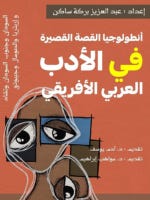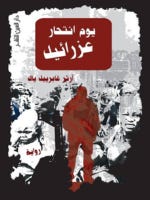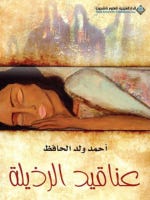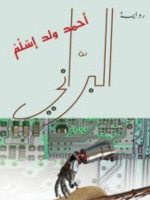June: Arab African Literature
This month, to celebrate the arrival of a new anthology, we take a look at African fiction in Arabic, particularly from Sudan, South Sudan, Chad, Eritrea, Somalia, Mauritania, and Djibouti.
As writer-scholar-translator Mona Kareem notes, the innovative framing of this new short-story anthology, edited by powerful Sudanese author Abdelaziz Baraka Sakin, marks a new step in centering African Arabic fiction.
The anthology, from Andaleeb Publications, features contributors from contributors from Sudan, South Sudan, Chad, Eritrea, Somalia, and Djibouti.
Back in 2015, when Sudanese novelist Hammour Ziada was asked about who’s missing from International Prize for Arabic Fiction longlists, he said, “Eritrean literature misses out, also Somali and Mauritanian, and these are Arab countries with authors who write in Arabic.” But talented writers from those countries have since been more widely recognized by prizes, critics, and readers across the region.
Also, if you’re interested in more, don’t miss our 2022 BILA HUDOOD panel on African narratives in Arabic publishing, moderated by Sawad Hussain and featuring Ahmed Val Bin El Dine and Ishraga Mustafa.
🔦Translator spotlight: Sawad Hussain
There are far fewer translators focusing on African literature in Arabic than on those of the Maghreb or Mashreq. Among those who have is Sawad Hussain, who has translated Eritrean novelist Haji Jaber’s Black Foam and South Sudanese novelist Stella Gaitano’s Souls of Edo, and chaired our BILA HUDOOD panel on African narratives in Arabic publishing. Sawad has an interest in lesser-traveled pathways in translation, and she starts off her bio by noting that she is “passionate about bringing narratives from the African continent to wider audiences.”
Among her works in progress is Sudanese writer Ishraga Mustafa’s Woman of the Rivers.
You can find Sawad talking about Sudanese women novelists at Words Without Borders, find her on BULAQ talking about her translation choices, and find her work in Mo(a)t: Stories from Arabic, a collection of African Arabic stories in translation that she co-edited, with work from South Sudan to the Western Sahara.
You can get in touch with Sawad through her website.
🏆Arabic Literary Prizes Beyond North Africa
The Mohammed Saeed Nawed Short Story Award is given to short stories written by authors from countries in the horn of Africa. For instance, the 2020 prize went to Sudanese short-story writer Mohammed Hassan Al-Nahat for “باحة بروكا” (“Broca’s Area”), which was translated by Nassir A-Sayeid A-Nour and France Meyer and published on ArabLit.
The Sudan-based al-Tayeb Salih Prize for Literary Creativity, named after the great Sudanese author, has been awarded since 2002. It’s presented by the Abdel Karim Mirghani Cultural Center in Omdurman. Recent winners include Mansour El-Souwaim’s طحلب أزرق (Blue Algae). El-Souwaim previously won a Tayeb Salih Prize for his novel Boundaries of Ash, which was translated by the critic Nassir al-Sayed al-Nour. You can read El-Souwaim’s short story “The Gizzard Tree,” tr. Nassir al-Sayed al-Nour, on ArabLit.
📚Featured Novel: Haji Jaber’s ‘The Spindle Game’
Haji Jaber’s The Spindle Game (2015) takes the form of a series of transcripts of tape recordings, which, as the novel ends, are handed over to the secret police. The narrative that unfolds through these transcripts tells of a nameless young Eritrean woman who starts working for the government department concerned with archiving the records of the Eritrean independence movement.
As translator Raphael Cohen writes: “Haji Jabir’s The Spindle Game is a novel that demands re-reading as soon as it is finished. The twist in its final pages makes the reader second-guess their initial interpretation, and underlines a major theme of the work: that stories and history are fluid, in constant motion, capable of being re-told and re-written.”
Read an excerpt from Tapes 3 and 4 at ArabLit.
You can also read a French translation, by Xavier Luffin, of an excerpt of Jaber’s Rimbaud the Abyssinian.
Interested publishers can reach out via info@arablit.org.
📚Writers Select: New and Inventive Voices in Sudanese Literature
In 2022, as part of our special “In Focus: Sudan” section, three Sudanese writers put together a list of their highlights from recent Sudanese literature. Among those books that still haven’t been translated:
صقر الجديان (The Secretary Bird), by Muhammad Sulayman al-Faki al-Shadhili (2020, Dar al-Watad). - Recommended, Mansour El Souwaim. He writes: “Through the story of a journalist who joins the northern forces fighting in southern Sudan in order to prepare press reports for the official newspaper of the armed forces, we are brought painfully close to the tragedies and atrocities of the worst war Africa has seen in the twentieth century.”
نبوءة السقا (The Waterman’s Prophecy, 2015, Dar al-Tanwir), by Hamed al-Nazir. - Recommended, Ayman Bik. “It tells the story of the Awtad and the Ahfad in an old Eritrean town, in which the Ahfad seek liberation from slavery based on an ancient prophecy about their liberation from servitude to the Awtad.”
قيامة الشجر (The Tree’s Resurrection), by Ithar Abdullah Yusef Muhammad. - Recommended, Lemya Shemmat. In this short-story collection, Shemmat writes, “The young storyteller transforms her hearing impairment into unconfined perspectives of deep contemplation, foresight, and philosophical insight.”
Read the whole list at ArabLit.
📚Featured Novel: Arthur Gabriel Yak’s ‘The Day Azrael Committed Suicide’
The novel begins in Juba, the capital of a young South Sudan which gained its independence in 2011. Colonel Franco, who is reputed for being a courageous and efficient officer thanks to his experience during the long civil war against the government of Khartoum, is sent by the authorities to quash a new rebellion by a rival ethnic group. He kills people with such ease that he is nicknamed Azrael, the Archangel who takes souls and guides them to heaven. Franco has always considered himself to be a pure Dinka, but when he goes back to his village to organise his sister’s wedding ceremony, he discovers that he is not welcome by the elders, and realises that his father actually belonged to the rival ethnic group he has targeted. Shaken by this discovery, he considers committing suicide.
A translation sample, by Xavier Luffin, is available in French.
Interested publishers can contact the author’s agent.
🔄Help for Sudan
Since we’re talking about Sudan, you can find a list of vetted fundraisers here.
💰Grants, subsidies, & support
Don’t miss LEILA’s list of grants, subsidies, and support on their website.
The Sheikh Zayed Book Award offers a significant subsidy for shortlisted titles in the children’s and literature categories. This could include a subsidy for Grapes of Vice, by Mauritanian novelist Ahmad Hafid, which was shortlisted in 2018.
If you know of grants or subsidies targeting Arabic literature, please let us know at info@arablit.org.
📚One More Featured Novel! Ahmed Isselmou’s ‘Outsider Mode’
البرّاني (Outsider Mode), by Mauritanian writer Ahmed Isselmou (@A7medisselmou). As July Blalack writes at Words Without Borders, “Ahmed Isselmou’s science fiction novel Outsider Mode (2021) imagines a new currency that links value directly to an individual’s productivity, regardless of their nation’s exchange rate. Invented by a resident of Futurcity and adopted around the world, the T-coin becomes a global economic driving force, only to find its strength challenged by a devastating cyberattack.”
Read an excerpt in Katharine Halls’ translation at WWB.
Going on Break in July
We will take a break in July. The newsletter will resume August 15, 2024.




